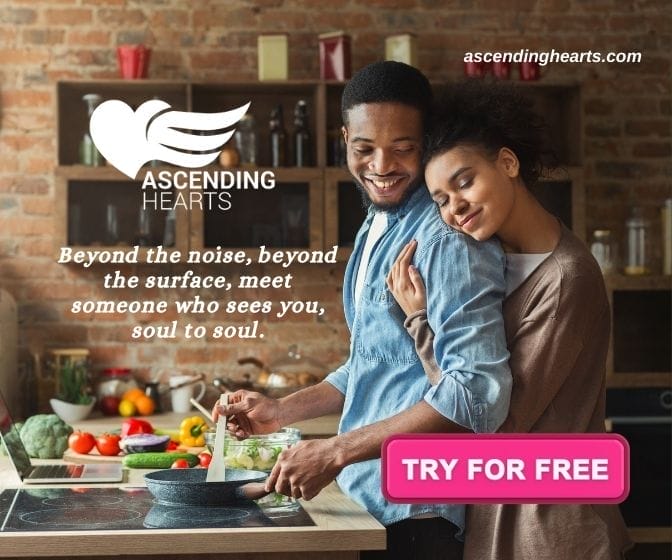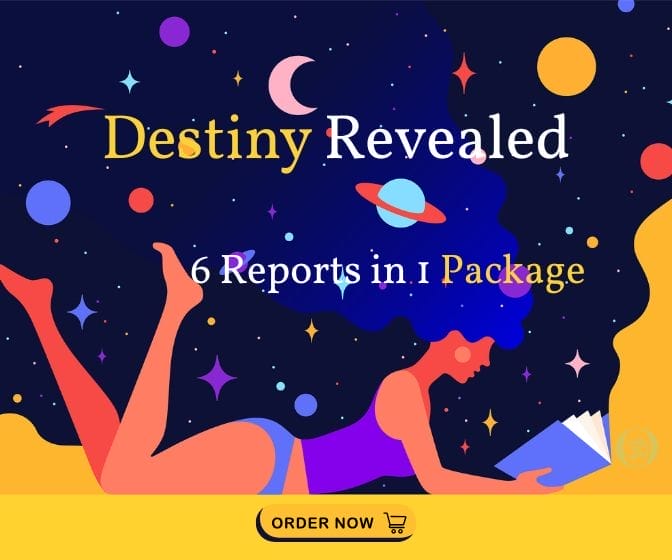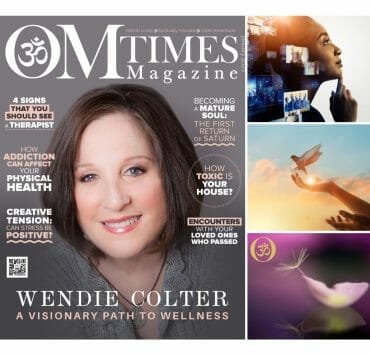Wendie Colter – The Essentials of Medical Intuition

Wendie Colter is a Certified Medical Intuitive Practitioner (CMIP), a Master Certified Wellness Coach (MCWC), and founder and CEO of Practical Path® Inc. Her accredited certification program, Medical Intuitive Training™, has been pivotal in helping wellness professionals develop and optimize their inherent intuition.
An Interview with Wendie Colter – The Essentials of Medical Intuition
Wendie Colter’s trailblazing research on medical intuition has been published in the peer-reviewed Journal of Alternative and Complementary Medicine, and she’s the author of the groundbreaking book “Essentials of Medical Intuition: A Visionary Path to Wellness.”
OMTimes was thrilled to sit down and speak with her.
OMTimes: Tell us about your background and where and how medical intuition became an important focus in your life.
Wendie Colter: Growing up, I had many experiences with what are known as the “clairs”: clairaudience, clairvoyance, and others. Then, as I got older, I was drawn to energy healing work. In learning to be an energy healing practitioner, I noticed that my intuitive visual sense had developed.
I could see into the anatomy and physiology and of my clients, and I could also see their life history. My intuition grew out of those experiences.
OMTimes: I’m very interested to know when you say it’s one thing to be able to see into somebody’s body. It’s another thing to actually know their history. How does that unfold?
Wendie Colter: It’s like watching a movie about someone’s life. I’m asking their energy to show me where the connections are. That’s a very interesting and useful skill.
Medical intuition is designed to perceive the underlying circumstances and potential ways to help people shift their energies.
OMTimes: Medical intuition and medical intuitives have been around for a long, long time. Tell us about some of the original innovators in this arena.
Wendie Colter: Caroline Myss and Edgar Cayce, two prominent medical intuitives in the U.S., brought this skill to the forefront. By intuitively observing the biofield and the body, they perceived information for their clients.
In the late 1700s, a German physician named Franz Mesmer created mesmerism, based on ancient concepts that the body holds energy which influences our health. Now understood as the origin of hypnotism, many of his techniques are also the basis of modern energy healing work.
In the 1800s, doctors and scientists were working with mesmerism. When they mesmerized their patients, they found that some patients could assess their own health issues and even recommend remedies. And they could also do the same for others.
That is where it began in terms of recorded scientific history. But, of course, in anecdotal history, it goes way back – probably to the dawn of humans.
OMTimes: You’ve been a trailblazer because your research has been published in some well-known peer- reviewed journals. What can you tell us about some of the research you’ve been involved in?
Wendie Colter: I found that there was very little published research specifically on medical intuition.
There have been a few promising studies. But studying it is challenging because it doesn’t easily conform to a typical gold standard approach like a placebo test does. When I began teaching healthcare professionals this skill, I wanted to create a very methodical process so that there was an outcome that we could count on.
I noticed that my students were hitting their marks, and their case studies were great. The students do a lot of practicum hours, and we were getting very uniform responses. I wanted to add this information to the body of literature. To that end, I created an exploratory study with the support of colleagues at the University of California, San Diego.
We wanted to see how accurate my medical intuitive graduates could be.
We had five medical intuitives and sixty- seven participants, some of whom were patients at UCSD medical center. The study was blinded as we did not have access to the participants’ medical records. Additionally, the medical intuitives had their eyes closed, so they didn’t have any visual cues. The participants filled out an anonymous survey after their sessions.
The survey results were pretty astounding! The outcomes showed a 94% accuracy rate in the medical intuitives’ ability to locate and evaluate the participants’ primary health issues and a 98% accuracy rate in the medical intuitives’ ability to relate the participants’ life events to their health issues.
In the post-session survey, we also asked the participants if they had received a diagnosis from their healthcare provider. The participants rated the medical intuitives as 94% consistent with their known medical diagnosis. Please note that the medical intuitives only described what they saw. Medical intuitives are not allowed to diagnose or prescribe unless legally licensed to do so within their scope of practice. The study was published in the Journal of Alternative and Complementary Medicine and represented the first published research in over 20 years. We’re very proud of it.
OMTimes: Was it challenging to get their collaborations in the first place to do these studies? Did you hit many walls?
Wendie Colter: You know, not really. Probably because I was working with colleagues who aligned with this idea. When I looked back at the earlier research – and I put as much of it as I could into the book – what really struck me was that all of the doctors and scientists who were involved with these studies expressed that, even though a study may have been inconclusive, it deserved more research. They felt that if medical intuition could be taught, tested, and proved, it would change the healthcare paradigm. And, of course, that’s what many medical intuitives have been saying all along.
OMTimes: Many physicians admit they use intuition and that it serves them very well. In fact, when I got your book, I also ordered a copy for a client and friend who had a stellar career in British medicine and was published by the Lancet three times. After reading your book, she said, “now I realize that’s exactly what I was doing while practicing medicine.” So, it’s not so farfetched.
Wendie Colter: As a matter of fact, there have been over 30 years of studies on how nurses use their intuition and how it enhances their ability to do their job. Doctors have been much more reluctant to talk about intuition, but that doesn’t mean they’re not using it.
OMTimes: It just makes you smile when you realize so many books have been published about CEOs and how they make their decisions. They’ll all say, “it was a hunch. It was my intuition; I just got a nudge.” We hear it all the time. So why do we not take notice?
Wendie Colter: Well, I’d say centuries of superstition and control. If you’re your own intuitive, then you’re following your own inner guidance, you could say. And if you’re following your own inner guidance, you might not be following somebody else’s. We all have intuition. It’s our birthright – it’s hardwired into us. But unfortunately, we still have so much superstition and misunderstanding. It’s quite sad. One of the reasons I felt free to develop my intuition is that my parents and those around me didn’t wave their finger at me and say, “no, no, no!”
I was able to develop my intuition without feeling like it was shameful or scary.
But children are not taught that their intuition is valuable. Instead, they’re often taught that it is something to keep quiet.
OMTimes: Yeah, sadly. And hopefully, that’s changing now. How did you create a methodology and a training program?
Wendie Colter: My Medical Intuitive Training™ program offers students the opportunity to earn certification as a medical intuitive practitioner, and is accredited for continuing education.
I designed it for wellness professionals because my feeling is that this skill needs to be in healthcare. I teach people who are used to using “left brain” ways of working because they have to. They have to learn, they have to know, and they have to be precise.
My method is all of those things. It’s very much a step-by-step process.
For me, medical intuition is a “conversation” with the body. I’m going to ask your liver, kidneys, lymphatic system, etc. – what does it want and need?
I’m not looking through the lens of my own body of knowledge.
I’m looking at what the body wants to show me and what the biofield may have stored, which is a completely different perspective.
OMTimes: It’s so interesting. If you look at how the whole arena of medicine has evolved over the years, it used to be something very natural and intuitive. There were all kinds of plant-based and nature-based options. Then it went through this whole “left brain” rigid programming. Anyone who studies to be a physician these days is trained only to look at the methodology and the science. What you are doing is you are taking them back to that original place where intuition and nature come back into it. I think that’s really cool.
Wendie Colter: That’s a lovely way to say it, and I would agree with you. That is some of the feedback I get from the M.D.s, the P.A.s, and the nurses. It’s completely different from their medical training, but it works with it.
It also works beautifully for acupuncturists, naturopathic doctors, health coaches, and wellness professionals because medical intuition is a foundational system. It’s not meant to replace anything. It’s meant to adjunct, support, and bring even more depth of information.
The doctors whom I have taught tell me it can help them save time, money, and even patients’ worries.
OMTimes: If the medical profession understands that, they could use this. If they were to have somebody trained in this, they’ve got it all at their fingertips.
Wendie Colter: Well, that’s the message I try to bring every time I speak at an integrative healthcare conference or when I teach medical students. Unfortunately, there are a lot of biases about conventional versus alternative medicine. We need everything, and everything must work together. I’m glad to say that in the U.S., the National Institutes of Health have a division for Complementary and Integrative Health. “Integrative” includes integrating biofield-based practices into conventional or mainstream healthcare. That’s very exciting.
OMTimes: It is very exciting. You speak at all kinds of organizations and associations. Is there resistance initially? As the doctors have been so trained, does it take a while to open their eyes?
Wendie Colter: Sometimes, but physicians are more open to this than you’d think. Still, it’s not part of medical training. Intuition is considered “you either have it, or you don’t,” which isn’t true. Another false notion is that intuition only comes from years of experience and a knowledge base pulled from the subconscious mind.
OMTimes: You write about the clairs, as you call them. You give a really good explanation of the six different clairs in the book. Many people would recognize themselves when they read that, although they may not have thought they had any clair beforehand. This morning, I was reading your book for the second time, and then I had a massage with my sports masseuse.
I discussed it with her, and she said, “After 20 years of doing this, it’s absolutely true that my hands just know. I know which parts of your body I need to focus on, and I can just feel it. But I can’t tell you if you ask me to describe how I feel. I just know it.”
Wendie Colter: That’s called claircognizance, meaning “clear knowing.” Everybody has claircognizance. We might call it a gut feeling or a hunch. Whether or not we acknowledge it becomes the question. If we pay attention to our intuitive “hits,” our intuition can grow.
I encourage everyone to try it.
OMTimes: In your book “Essentials of Medical Intuition,” you say that our bodies have a strong desire to tell us what they want and need. By intentionally intuitively tuning in, we can help to gently open up those avenues of communication. Tell me a little bit about how we could do that.
Wendie Colter: I’m passionate about teaching people how to intuitively connect with their bodies.
My workshop, “Medical Intuition for Healing,” is open to everyone. It’s such an important skill, particularly when we’re experiencing a health issue.
One skill is knowing how to “ground” and work with our energy field.
Our energy field surrounds us and permeates our bodies. Also known as the biofield, it’s our auric field and our chakra system.
Grounding is an energetic process designed to connect our bodies to the earth. From the soles of your feet, you can imagine roots growing straight into the ground and imagine feeling that connection with the earth. Imagination and pretending, as we did when we were kids, are excellent ways to develop intuition. I also have exercises for what I call “shielding,” where we can energetically create a “safe space.”
In another exercise, I ask you to choose a part of your body where there’s an issue.
We can imagine seeing these parts of our bodies in our “mind’s eye.” People find their bodies may show them things they may have had an intuition about but never acted on. It’s a lot of fun!
The premise is that our bodies have their own conscious awareness. Our anatomy stores information, both energetic and physical. We want to talk with our bodies to find out what we can do to help them balance and shift.
OMTimes: Well, I want people to know that you do some great exercises. I don’t like exercises in books. I never want to do them, nor do I want to journal at the end.
However, I will say that I did want to do the exercises you offer in the book because they’re all about me getting in tune with my body and learning how to understand and interpret it. So, they’re good and definitely worth looking at.
You talked just now about the energy that we hold in our bodies, and trauma has become a very hot topic of late. I think everybody who’s lived through this pandemic has had trauma to some degree.
You talk about the many different types of trauma: acute, complex, chronic, intergenerational, and vicarious. But there’s another kind of trauma that often gets overlooked. And that is the energetic trauma that lingers, even when the problem may seem to have been removed. Tell me about that.
Continue to Page 2 of the Interview with Wendie Colter
Click HERE to Connect with your Daily Horoscope on OMTimes!
Visit Our Astrology Store for Personalized Reports
OMTimes is the premier Spiritually Conscious Magazine. Follow Us On Facebook, Twitter, Instagram, Linkedin, Pinterest, and Youtube
OMTimes Magazine is one of the leading on-line content providers of positivity, wellness and personal empowerment. OMTimes Magazine - Co-Creating a More Conscious Reality








